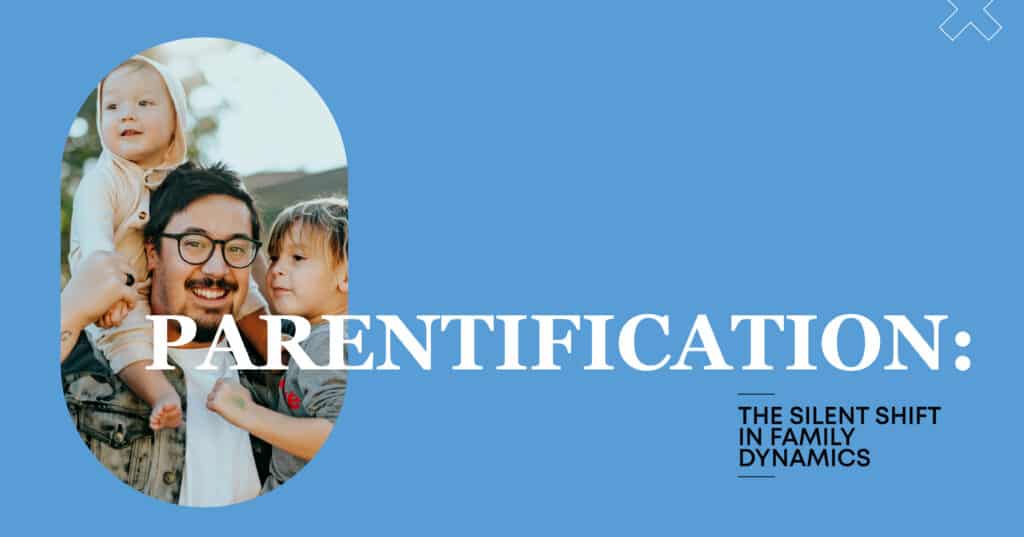There are families where children are forced to mature faster, not because they want to, but because of the situation. They have to play the role of nurturer and support instead of being nurtured and supported, problem-solvers, or emotional anchors to parents and other siblings. This is a powerful yet subtle phenomenon which is referred to as parentification. So, what is parentification? It is a role reversal where the child assumes the role and responsibility that are normally meant to be taken by an adult, like assuming the household chores or being a shoulder to lean on for the caregivers.
Psychological studies reveal that such a dynamic is usually not noticed, but has profound psychological effects. Parentified children can be emotionally burdened, mature too soon, and fail to develop a sense of self. Be it taking care of a sibling, taking on the role of a caregiver, or becoming a referee in a family dispute, such children are usually deprived of the carefree nature of childhood. This blog will discuss the causes of parentification, the signs, and its long-term effects, as well as what can be done to repair the damaged family functioning and the healing process.
Definition of Parentification
Parentification is a psychological term that denotes a reversal of roles wherein the child is forced to act and assume the role of a parent or a caregiver. This reversal of roles can occur in two forms – emotional (child consoles or counsels parent as a peer or advisor) or instrumental (child performs adult duties such as cooking, cleaning, or sibling care). Although a lot of children contribute to household duties, parentification exceeds that. In such a case, the child is too concerned with holding the family members together.
This may result in adultification, the child behaves beyond their age, yet they face the challenge of feeling emotionally unacknowledged or abandoned. Knowing about parentification allows parents, caregivers, and professionals to understand when a family dynamic is not healthy and could be potentially damaging to the emotional development of the child.

Types of Parentification
Parentification may have varying forms and manners of influence on the child’s development. Some children are made to accomplish physical tasks, whereas others can have a strong emotional burden. Recognizing the variations of parentification is the key to spotting the unhealthy family role and providing the appropriate assistance. These categories point to the fact that children can find themselves in the situations of caregivers, either literally or emotionally, way too early in their lives.
| Type | Description | Examples |
| Emotional Parentification | The child offers emotional support to parents or siblings, often acting as a confidant or mediator. | Listening to a parent’s personal problems and calming a sibling’s emotions during arguments. |
| Instrumental Parentification | The child takes on practical caregiving responsibilities typically handled by adults. | Cooking meals, cleaning the home, and taking care of younger siblings. |
| Overt Parentification | The parent openly relies on the child for emotional or physical support and acknowledges their role. | A parent directly tells the child they are “the man/woman of the house.” |
| Covert Parentification | The child senses that they must take responsibility without explicit direction, often internalizing the pressure. | Feeling obligated to act as a peacekeeper without being told, sensing unspoken expectations. |
| Pathological Parentification | An extreme form where the child becomes the primary caregiver due to the absence, illness, or dysfunction in the parents. | Caring for a parent with substance abuse issues or severe mental illness. |
| Situational Parentification | Temporary role reversal due to short-term family crises, which may or may not have lasting psychological effects. | Helping care for a sibling during a parent’s hospitalization. |
Causes of Parentification
The process of parentification is most of the time associated with the interference in normal family functioning when the child is obliged to act as an adult. These disturbances may be either intentional or unintentional, and they are most often witnessed in homes that are dealing with instability, emotional neglect, or excessive stress. It is these underlying causes that should be identified in order to avoid the emotional baggage that children have to carry in the long term.
Common causes of premature emotional burdens in children include:
- Parental illness (physical or mental health issues)
- Substance abuse or addiction within the household
- Divorce or separation of parents
- Death or absence of a caregiver
- Financial instability requires children to assist with adult tasks
- Emotional neglect or lack of appropriate parental support
- Having younger siblings with high caregiving needs
- Cultural or familial expectations of early responsibility
- Domestic violence or high-conflict environments
- Immature or emotionally dependent parents
Effects of Parentification on Children
The emotional and psychological impact of putting children in a caregiving position at a very young age can last a lifetime. Parentification can also cause premature maturity, when a child behaves more like an adult than other children and in most cases the child ignores their needs. Although children can become strong and resilient with a high sense of empathy, most of them end up carrying emotional baggage that affects their growth and happiness.
Parentification may have the following effects on children:
- Increased anxiety and chronic stress due to overwhelming responsibilities
- Emotional neglect of their own needs as they prioritize others
- Difficulty forming healthy boundaries in relationships later in life
- Low self-esteem is tied to feelings of inadequacy or failure
- Anger or resentment toward parents or siblings
- Struggles with identity and self-expression
- Burnout or fatigue from long-term caregiving roles
- Challenges in trusting others or seeking help
- Social isolation from peers due to role differences
- Risk of developing depression or other mental health disorders
Signs of Parentification in Families
The process of parentification might be delicate and unnoticeable, particularly in those families where the adoption of adult roles by children is accepted as a matter of course. Nevertheless, there are behavioral patterns and emotional signs according to which it is possible to understand that a child has assumed responsibilities which do not match his/her development level. Early identification of these signs can assist families to find help and to revert to healthier family relations.
| Category | Signs of Parentification |
| Emotional Indicators | Constant worry about family members’ well-being, excessive guilt, and emotional numbness |
| Behavioral Patterns | Taking care of siblings or even parents, managing household duties, and acting as a peacemaker |
| Social Clues | Avoidance of play or peer activities, preference for adult company, social withdrawal |
| Academic Impact | Difficulty concentrating in school, underperformance due to home stress |
| Verbal Expressions | Statements like “I have to take care of everything” or “My family depends on me” |
| Physical Symptoms | Frequent fatigue, stress-related headaches, or stomachaches |
Long-term Impacts on Adult Life
The impacts of parentification are usually manifested religiously in children, even in their adult lives. This premature role reversal and emotional heavy load can define their perception of self, relationships, and the surrounding world. Parentified adults might have difficulties finding boundaries, trusting, or taking care of their emotional needs since they were taught to take care of others since childhood.
Anxiety, depression, chronic guilt, or inability to develop balanced relationships may also be developed as long-term effects. They may avoid responsibility because of burnout, or they can be hyper-responsible in their personal and professional relationships. Understanding these long-term impacts is the first step toward healing and developing healthier emotional habits.

Learn Strategies for Addressing Parentification at Hillside Horizon for Teens
Whether you are struggling with the consequences of parentification or you know someone who does, our therapeutic boarding school, Hillside Horizon for Teens, is designed to provide therapeutic interventions based on the specifics of re-establishing emotional stability and recuperating the lost family roles. Our caring staff knows how heavy the silent maturity can be and how to overcome its influence.
Reach out to Hillside Horizon for Teens now and start the process of recovery and the restoration of emotional health.
FAQs
What emotional burden does parentification place on children in family dynamics?
Parentified children usually get bogged down between the adult roles, and as a result, they become chronically stressed, anxious, and suppress their emotions. Such an emotional load can deprive them of their childhood and normal development.
How does role reversal lead to premature maturity in children?
Role reversal causes the children to assume adult like responsibility earlier than they should be, thus causing them to grow up quickly, but mostly at the expense of their emotional and social growth. It may cause burnout and an identity crisis in adulthood.
What are the caregiving responsibilities typically taken on by adultified children?
Adultified children could be in charge of housework, offer emotional support to the parents, take care of brothers and sisters, or be in charge of finances. These duties may break down the boundaries between being a child and an adult.
How does sibling care contribute to the emotional neglect of parentified children?
In cases where the children are supposed to take care of their siblings, they end up forgetting about their needs. Such negligence may result in emotional abandonment and the assumption that their self-worth is only associated with caregiving.
In what ways does parentification affect the long-term development of children within family dynamics?
Parentification may lead to permanent problems such as low self-esteem, relationship problems, and an intense sense of guilt or over-responsibility. It can also disorient emotional controls as well as the sense of self, much later in life.




